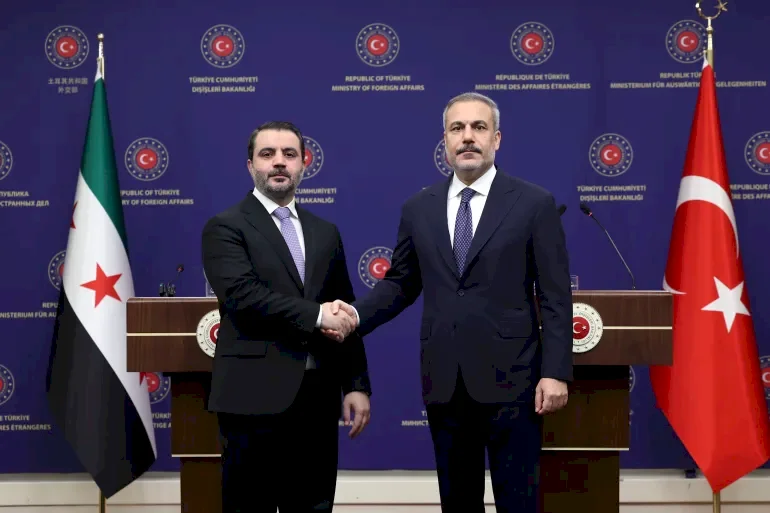
Turkey Supplies Syria with Military Equipment for Northern Use
SadaNews - Bloomberg reported, quoting Turkish officials, on Friday that "Turkey plans to supply Syria with military equipment including armored vehicles, drones, artillery, missiles, and air defense systems in the coming weeks."
The officials added that "Ankara and Damascus discussed expanding an existing agreement that allows Ankara to strike Kurdish fighters near the Turkish border from 5 kilometers to 30 kilometers, in a step aimed at expanding Turkish military operations in the region."
Turkey and Syria discussed current developments and security cooperation between the two countries, particularly in the fields of counter-terrorism and border control, during a high-level meeting in Ankara last Sunday.
In attendance from the Turkish side were Foreign Minister Hakan Fidan, Defense Minister Yaşar Güler, and Intelligence Chief İbrahim Kalın.
Representing Syria were Foreign Minister Asaad Al-Shibani, Defense Minister Marhaf Abu Qasra, and Intelligence Chief Hussein Al-Salama.
Sources told Bloomberg that "the military equipment will be deployed in northern Syria, with a focus on avoiding escalation of tensions with Israel in the southern part of the country."
Since the fall of Bashar al-Assad's regime on December 8, 2024, relations between Ankara and Damascus have been rapidly warming, evidenced by high-level political and security meetings aimed at enhancing joint coordination and ensuring stability along the border between the two countries.
Commander of the Syrian Democratic Forces (SDF) Mazloum Abdi announced a few days ago that a "preliminary agreement" had been reached with the Syrian authorities on the mechanism for integrating his forces within the Syrian Ministries of Defense and Interior.
He explained - in an interview with the Agence France-Presse inside a military base in the city of Al-Hasakah - that talks are currently underway between the two parties in Damascus.
Abdi and President Ahmed Al-Sharaa signed an agreement on March 10, which included several provisions, the most important being the integration of the civil and military institutions of the Kurdish self-administration into national institutions by the end of the year, including the transfer of control over border crossings, an airport, and oil and gas fields to Damascus. However, the implementation has been slow amid mutual accusations.

Report: Iran War May Last Until September

France Allows the United States to Use Its Bases in the Middle East

Education: Announcement of the School and University Attendance Mechanism Next Sunday

Civil Defense: We dealt with 12 cases of falling rocket shrapnel resulting in 4 minor inju...

Occupation Continues to Close Al-Aqsa for the Sixth Day and Prevents Worshippers from Ente...

Herzog: Our goal is to change the Middle East and we are not in the process of a ground in...

Italy Plans to Send Air Defense Assistance to Gulf States

